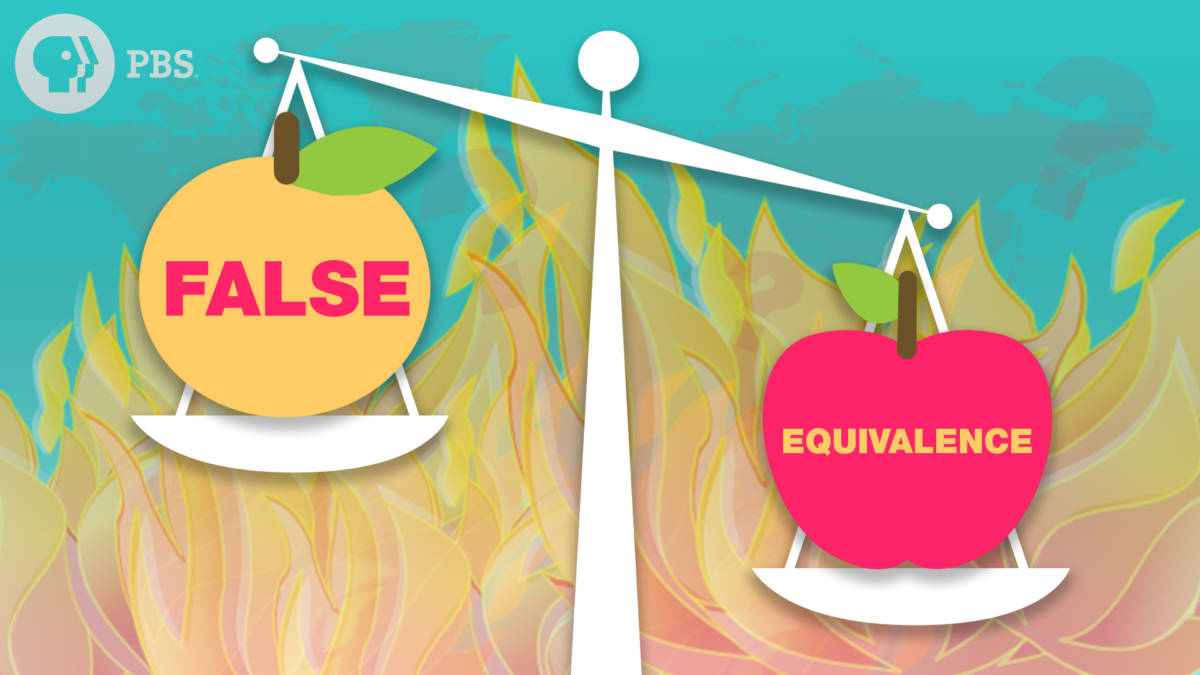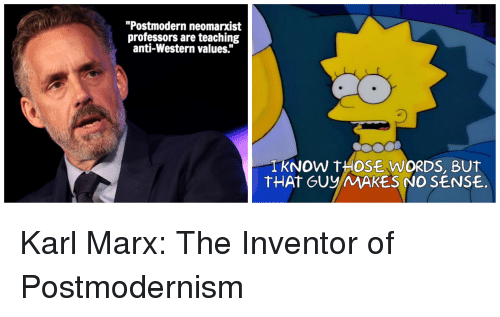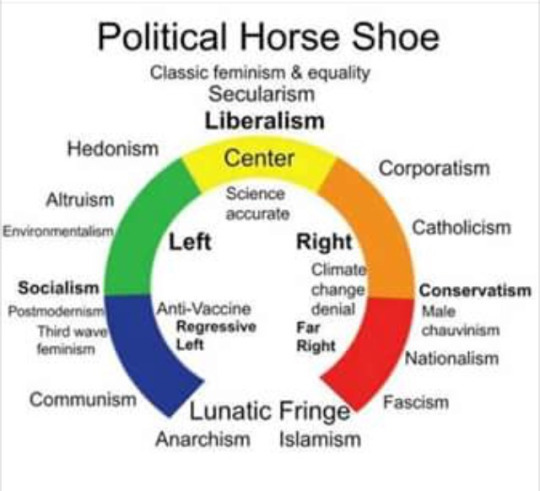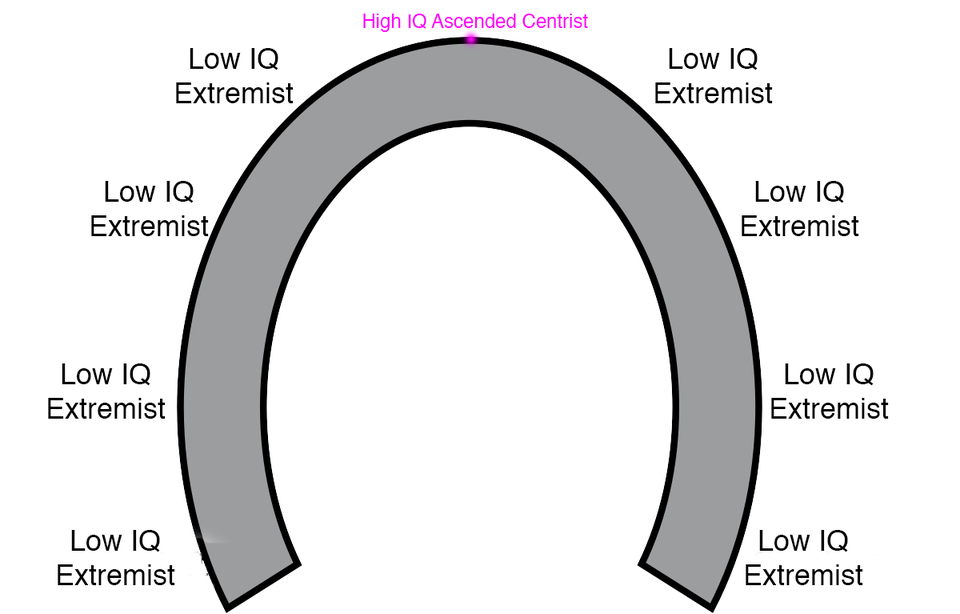Rational Centrism: Dispelling the Myth
Howdy folks,
Today I’m going to go over some stuff that I have historically shied away from on here. It’s no secret that the atmosphere of the current age is, to put it lightly, divided. Conversations with casual acquaintances are often very guarded. Participants hold their actual views close to the chest. If they’re feeling extra comfortable, perhaps they’ll sprinkle in a code word or two, a shibboleth designed to allow plausible deniability. We’re always secretly calculating the values of the other party based on small word choices.
Dogwhistles.
So today, I’m going to take off the veil of neutrality (as I have done once before in my impossibly naive New Year post) and talk about politics.
Disclaimer: linking of sources below is not necessarily an endorsement of those sources.
Keeping it Rational
It has been widely claimed that American politics today are more divided than they have been in hundreds of years (with some claimants using the Civil War as a reference point). To say that that viewpoint has bipartisan support would be an understatement.
Some commentators, like those of the self-styled “Intellectual Dark Web” (IDW for short)1, believe that The Left has gone too far with their calls for political correctness — which is another dogwhistle2 — and that freedom of speech is under attack. Others, myself included, believe that the situation at the border is, at best, reminiscent of Japanese internment camps.

Among all this sniping from Left to Right and Right to Left, there is a cabal positioned between. One that stands up and holds the two shouting sides apart, declaring, “Hang on now guys, let’s be rational. Can’t you see that there are valid problems on both sides?”3
That person is right, obviously. It is a fundamental fact of humanity, recognized for millennia, that nobody is perfect. And some, like popular IDW member Jordan B. Peterson, say that we should “clean up [our own rooms]” before we try to “give advice to the world”. As Peterson says, this advice isn’t new: it goes back to the New Testament line about removing the log from your own eye before getting concerned with the speck in your neighbor’s eye. It’s certainly not bad advice.
The “Starving Kids in Africa” Deflection
We are told that we should deal with our own side’s problems before addressing the problems of the other side. Naturally, it makes little sense to concern ourselves with things we can’t change. It would be much more productive to enrich ourselves by doing the things we are able to do.
Except the real world doesn’t allow that. The various global crises going on at any given time will not simply pause and wait for us to clean our rooms. This global pandemic has illustrated, more clearly than ever before, that the actions of others have real and dire consequences on us right now. We can’t afford to stop and clean our rooms because everything else in the world is so thoroughly wrong, and it actively threatens our very existence.
Let’s tie that back to Peterson’s room cleaning metaphor. Here, the nation’s pandemic response is like a crumbling foundation. The whole house shudders with every strong breeze, knocking the neatly-arranged knick knacks off your shelf. No matter how hard you try, you cannot keep your room clean because of the direct effects of the larger problem: the crumbling foundation. If you’re prohibited from fixing the foundation until your room is tidy, you’re doomed to stay in a messy room within a crumbling house.
This is a mirror-image of the rhetorical technique I like to refer to as the “Starving Kids in Africa” deflection. In invoking this deflection, a person will incredulously ask a question to the effect of, “How could you possibly go and protest [such and such an injustice] when there are starving kids in Africa?” It doesn’t have to be starving kids in Africa, of course. A common deflection in the wake of the Black Lives Matter movement is to point out that “black people kill each other at a higher rate than police kill black people, why don’t we talk about that?”4 Even looking past the possibly-racist motives5 in sharing the black-on-black homicide statistic, the argument assumes that you can’t care about more than one thing at a time. It assumes that, while there are “bigger” problems in the world, we should not focus on the “smaller” ones.
Protesters tackling the “smaller problems” are met with criticism in this way. They try to clean the room, which Peterson says is a prerequisite for affecting change, but their opponents suggest that there are bigger fish to fry. Now, they’ve been given two conflicting requirements: fix the small problems first, and fix the big problems first. The reality is that these problems are not discrete. They are not malfunctioning widgets to be replaced. They are dynamic and interconnected, and we pick and choose at our peril.
The Implicit False Equivalence
Now let’s go back and examine the role of the Centrist in the exchange above: one side is concerned with immigrant detainment, the other is concerned with censorship. In the Centrist’s claim, there is an implicit concession to both sides. The Centrist says that the complaints of each side are valid. In the given example, free speech is important, and treating immigrants humanely is important. On its face, it seems an unimpeachable position. We can all agree on that, so we’re all done here, right?

No, we’re not. In proposing a compromise, for this example, the Centrist has fallen prey to question-begging. By agreeing that these concerns are (in the abstract) both valid, in the mind of the Centrist, you’ve also agreed that both (material) grievances are equally valid. To put it another way, agreeing to the Centrist’s compromise is the same as saying freedom of speech is under dire attack, and that the problem is just as real as holding would-be immigrants in internment camps. The premise, though, is incorrect. People are being interned at the border in unsafe, inhumane conditions, and although the IDW has equated laws protecting trans people from discrimination to censorship, these complaints are overblown. Finding real examples of laws which abridge speech for the goal of “political correctness” is very hard (though not impossible).
The concern for each ideal is valid — free speech is important and the rights of immigrants are important — but not all important things have the same level of urgency. When Charles Murray, a prominent race realist,6 had his talk shut down at Middlebury, it was little more than a slight, despite what the IDW may suggest. Murray was not legally silenced. He wasn’t even “cancelled.” He remains employed at the American Enterprise Institute and he even had a book published this year. On the other hand, over 10,000 children are being kept in unsanitary conditions at the border, separated from their parents. These two issues are not comparable in the least.
The Placebo of Compromise
To be fair to the Centrist, they probably aren’t doing this intentionally. Somewhere along the line, they learned and internalized the common wisdom that “compromise leads to the best result.” Compromise has its merits, certainly, but to say that we must always come to a compromise is unwise.

In order to illustrate why, we must return to the dark days that catapulted Professor Peterson to infamy: Bill C-16. In Canada, a bill was introduced to add trans people as a protected category. The protections afforded under this bill are essentially: a trans person cannot be fired or refused service based on their status as transgender, and calling for the extermination of trans people is legally hate speech. Peterson testified that any form of abridging speech was unacceptable, and that this bill would provide a dangerous precedent. He argued that, with a bill like C-16 on the books, the day would soon come that a person could be prosecuted for failing to honor someone’s pronouns.
You know, a slippery slope argument.
When asked to compromise, then, proponents of the bill are left with very little ground to fall back on. By allowing the false equivalence, we accidentally “admit” that yes, you have a point Dr. Professor Peterson, Bill C-16 does set a dangerous precedent! Except that isn’t really true, and proponents don’t really believe that. Furthermore, by backing off, they imply that maybe bills like that are bad, and they shouldn’t try to pass new ones of its kind. Or, to get right to the point, they agree that they won’t try to protect any more marginalized groups from systemic/legal discrimination.
At the end of this exchange, what do we get? On the Left, if we say that we won’t protect marginalized groups, we can get a little humane treatment of immigrants, as a treat. The response from the Right becomes, “great, that’s exactly what we wanted, and we still won’t accept more immigrants but we suppose it’s fine to send them home instead of jailing them indefinitely and losing track of their children.” The Centrist, steepling their fingers and nodding sagely, says “I’m so very glad we all see the value of compromise, children. Now who wants a cookie?”
You’ll notice that the Left side and the Right side did not start on equal footing. Certainly this whole discussion is one of cherrypicked examples, and lawmaking doesn’t quite shake out as a quid pro quo like this in the real world. I think, though, that the example serves as a realistic synthesis of Left and Right positions. To summarize, the Right takes a position that’s more extreme than the one they want, and are satisfied to return to their original position when they have to cede ground. The Left takes a position that is equal to what they want, and when forced to cede ground, gain nothing. The compromise harms the Leftist position while providing a feelgood image of responsibility and maturity.
This leads nicely into the final point. Due to shifting public perception, this aggressive pull in one direction has a compounding effect that makes it harder for one side to gain ground. This pull is aided by the Centrist’s call for “rational neutrality and compromise.”
Whatabout Horseshoe Theory?
There’s a widely-shared graphic that attempts to visualize the common perception of the political spectrum as a horseshoe. The argument is, in essence, that the two opposite ends of the “Left-Right” axis, Communism and Fascism, are actually not that different from one another, ideologically. Let’s ignore the fact that visualizing politics on only one axis is stupid and analyze why this visualization is misleading.
To begin with, it implies that any deviation from the Center is somehow less rational. Clearly, any position which is aligned with a particular ideology must be tinged with emotional “feelings over facts” reasoning. A rational, dispassionate analysis of the world must always arrive somewhere in the Center.


This image is really bad.7
What this actually amounts to is indecision. It is a fear of making a choice, a fear of deciding what values you actually hold. I posit that the most noble goal a Centrist could possibly have is to not appear too radical. Of course, that’s something we all do, to varying degrees. There are plenty of things we believe but don’t say, and there are plenty of positions we hold that we’ll try to cushion with neutral, “rational” language.
The Centrist misses a crucial point, however: what is “in the middle” depends entirely upon where the endpoints are placed. There is a measurement in politics called the Overton Window which defines the range of acceptable ideas in a current political mainstream.8 As the political zeitgeist shifts left or right, the Overton Window reflects those shifts, demarcating the “most-Left” acceptable position and the “most-Right” acceptable position.
When the Centrist arrives on the scene, obsessed with dispassionate analysis of the facts as they stand, they seemingly neglect that the Center they occupy is already inherently a product of the mainstream ideology! In actuality, the Centrist will never divine the “true neutral” because the Overton Window will never straddle a mythical “universal Center.”
Furthermore, not only does the Centrist speak from an illusory place of neutrality, but they also help the Right in doing so! Recall the example above, where the American Right takes babysteps rightward. We know that the “American Right” represents the rightmost acceptable ideas in the current American Overton Window. So when the Right moves further rightward, and the Centrist comes along to offer compromise, and the American Left accepts, the Overton Window narrows. As the Left gate shifts towards the Center, it becomes easier and easier for the Right to shift rightward without seeming too radical.9
It’s important that we really spell something out: the American Right’s chief desire is to preserve the status quo. To conserve it. The American Left wants progress: more protections for the people. All the Right has to do is inch a little more towards the right for a second, and the American Left (which is now closer to centrist) will concede itself out of making any change. Conservatism is a game of inertia: it has been this way for a long time, and things are working fine, so we will fight any and every change. Even if no new legislation is passed, the Right has still fulfilled its promises. The Left does not have the same luxury.
Keep the Baby, Lose the Bathwater
After all that, there is a role to play for a certain kind of Centrist, but it’s by no means easy. Instead of indiscriminately calling for compromise and levying the blame at bothsides, a truly Responsible Centrist must carefully consider their positions. The Founding Fathers knew just how destructive rapid, careless change could become. That’s why changing structures in the USA is so hard. The Responsible Centrist must know this truth as well. They have to bear it in mind when considering every political exchange.
The system we live in is a complex one, and even the smallest legislation can have wide-reaching effects. The Responsible Centrist, then, advocates for careful progress. They recognize the value in the status quo, but acknowledge that change is necessary as humanity learns and grows. They honor traditional values, but only as far as they still hold value. Instead of a stubborn cling to the way things were, they embody a careful analysis of what is good and right for the future.
The Responsible Centrist decides what they value for the nation. Compromise is one of many tools in their toolbox; compromise is not their driving ideological value.
Just Make a Choice
In discussing this post, my fiancee turned my attention to Revelation 3:15-3:16: “I know your deeds, that you are neither cold nor hot. I wish you were either one or the other! So, because you are lukewarm — neither hot nor cold — I am about to spit you out of my mouth.” I spent some time arguing against the broad application of a different Bible verse earlier, but this one is more illustrative and less of a parable. To summarize, God said “make a choice, goshdarnit.”
I don’t mean to say that you have to be 100% Left or 100% Right. I’m saying that you can’t simultaneously claim to be fair and unbiased while also calling for even compromise between two uneven sides. That’s not really fair. That’s not really unbiased. That’s not a real position. It is a crucial step in life to realize that, in politics, there is no objectively correct answer. At some point, someone has to make the call and decide if a policy is in line with their values. To be an “Enlightened Centrist” is to give up the right to make those value judgments yourself.
Don’t faff about. Know what you value. Make a decision.
Best,
Andrew
As always, thanks for reading. Many thanks to my friend Nick, who provided excellent advice and additional examples to strengthen this article. Feel free to discuss in the comments below, or take a look at my about page for other means of contacting me!
-
The IDW, informally started by Eric Weinstein, Bret Weinstein, Bari Weiss, Jordan Peterson, and Dave Rubin, is an “alt-lite” group which prides itself on being “oppressed” and “silenced” for their politically incorrect (but “true”) ideas. See also: grifters. ↩
-
Complaining about “political correctness” is one of those things that seems, on its face, pretty reasonable — censoring folks is bad, after all. In practice, however, the folks decrying “PC Culture” are often upset that they’ve been asked to be polite to demographics they don’t like. ↩
-
Image provided by WikiHow under Creative Commons 3.0. ↩
-
While this is a factually true statement, it is also worthless. For one, it is simply logical that the perpetrator and the victim of a crime are, in most cases, part of the same demographic because we are more likely to victimize members of our own community — it is often more convenient, because we have insider knowledge of how best to get away with said crime. For two, cops make up a statistically tiny portion of the population, so this surface-level comparison ignores lots of important context. Context is indispensable to any worthwhile analysis! ↩
-
To be clear: pointing out unfortunate statistics is not inherently racist. One must be aware of unfortunate truths in order to fix them. However, pointing out the black crime statistic during a discussion on police brutality is often done in bad faith — the implication(s) being that black people are inherently more violent, police should be more ready to respond with violence, or even worse, that black people deserve it. ↩
-
“Race Realism” is the racist notion that the disparity of measured intelligence between races is attributable to DNA. A much better explanation points to other conditions such as socioeconomic status or testing bias. For more information on Murray’s claims specifically, I would refer one to this video by Shaun on the numerous methodological problems with Murray’s most famous work, The Bell Curve. ↩
-
Note the bizarre progression on the Right from “Corporatism” to “Catholicism” to “Islamism,” as if these were on a continuous spectrum of ideology. The Leftward progression is similarly nonsensical, with Left-wing Liberals being “Hedonists.” The jump between “Communism” and “Anarchism” is particularly egregious, considering that the most notable Communist state in history, the USSR, was by many definitions an authoritarian state. Crucially, the image explicitly states that positions which deviate from the Center are neither “science” nor “accurate.” ↩
-
Overton did not want his ideas associated with the overly-simplistic Left-to-Right axis, but his alternative spectrum, “More Free to Less Free,” carries with it even more unspoken judgment. So let’s ignore his desires for the time being. ↩
-
Peter Coffin does a much better job of explaining this parasitic relationship in their video on Horseshoe Theory. ↩
